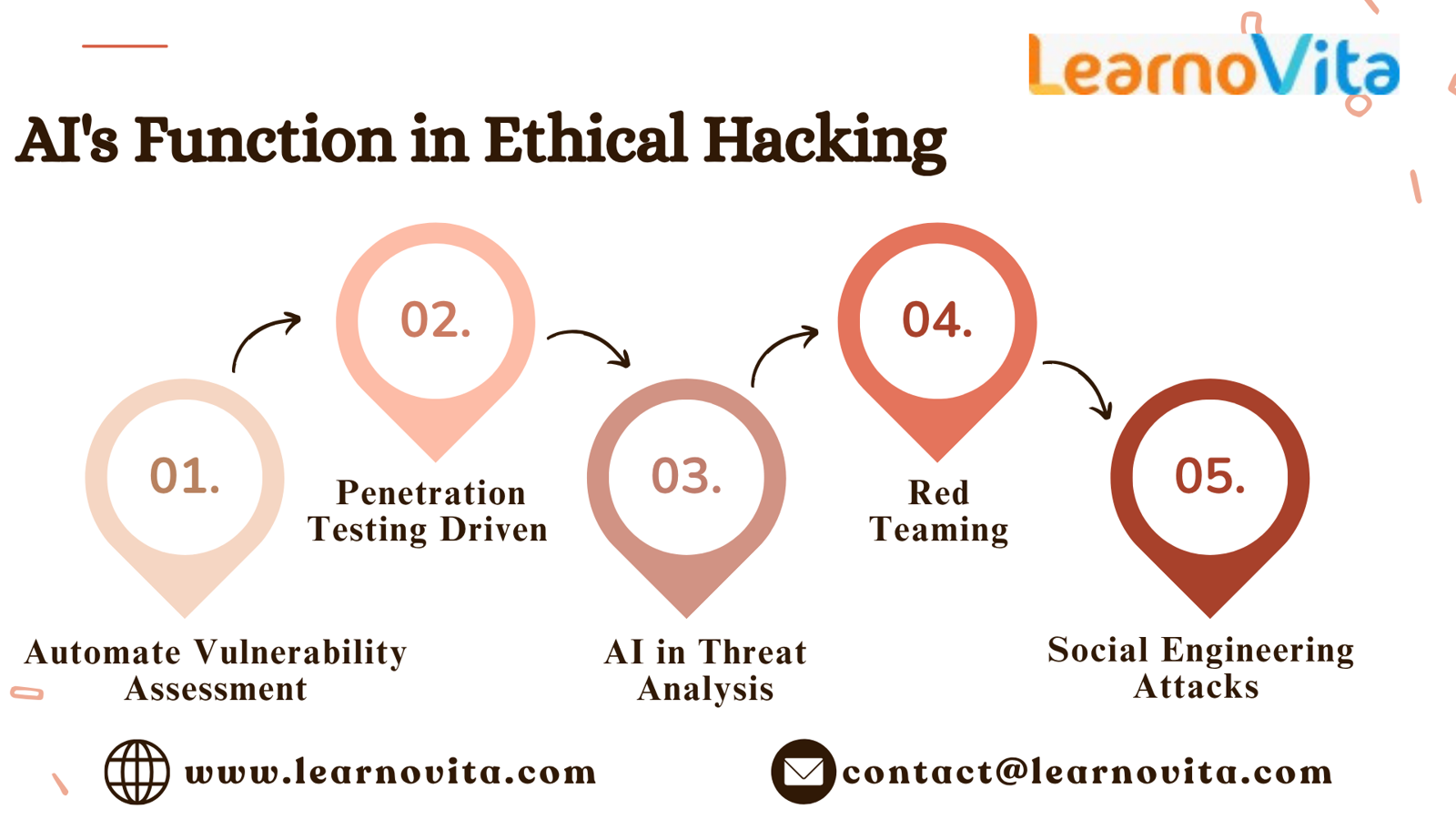Ethical hacking has long been an essential pillar in cybersecurity—helping organizations uncover weaknesses and strengthen their digital defenses before malicious actors can strike. With the rise of artificial intelligence (AI), this crucial practice is evolving rapidly. AI is making cybersecurity faster, smarter, and more precise by enabling ethical hackers to identify and neutralize threats more effectively. Yet, this progress also raises important ethical questions about the responsible use of AI technologies.
Ready to enter one of today’s most in-demand tech careers? Join our top-rated Ethical Hacking Course in Bangalore and gain hands-on experience with cutting-edge cybersecurity tools.

AI's Role in the Evolution of Ethical Hacking
AI is transforming ethical hacking by automating time-consuming processes, simulating real-world attack scenarios, and improving threat analysis with unmatched accuracy. Here's a breakdown of how AI is making an impact:
1. Accelerated Vulnerability Detection
Manual vulnerability assessments are often slow and error-prone. AI speeds up and enhances this process by:
Quickly analyzing large datasets to detect flaws in systems.
Increasing accuracy while minimizing human mistakes.
Learning from past data to reduce false positives and improve outcomes.
2. Smarter Penetration Testing
AI is changing how penetration testing is done by:
Adapting hacking strategies in real time through machine learning.
Interpreting test results using Natural Language Processing (NLP) to suggest targeted fixes.
Automating complex tasks to streamline testing and reduce manual effort.
3. Proactive Threat Forecasting
With AI, ethical hackers can stay ahead of cyber threats by:
Monitoring the dark web for signs of emerging dangers.
Analyzing user behavior to detect insider threats.
Predicting future attack trends using advanced data models. Master the art of real-time cybersecurity explore our Ethical Hacking Online Course now.

4. Combating AI-Based Social Engineering Attacks
Cybercriminals are using AI to create realistic phishing schemes and deepfake content. Ethical hackers are countering with AI by:
Detecting AI-generated phishing emails and messages.
Identifying deepfake audio and video used in fraud.
Building stronger defenses that combine AI analysis with human intuition.
5. Enhancing Red, Blue, and Purple Team Collaboration
AI is boosting team-based cybersecurity strategies:
Red teams can simulate advanced attacks using AI automation.
Blue teams can respond faster with AI-driven threat detection.
Purple teams benefit from AI-supported collaboration between offensive and defensive operations for a well-rounded security approach.
Conclusion
AI is rapidly redefining the landscape of ethical hacking improving everything from vulnerability detection to threat prediction. While it empowers cybersecurity professionals with powerful new capabilities, it also introduces new challenges such as bias in AI models, adversarial threats, and ethical concerns.
To build a secure digital world, we must harness AI responsibly guided by skilled ethical hackers who combine human judgment with technological innovation. Those who adapt and grow with these advancements will lead the way in shaping the future of cybersecurity.


Write a comment ...